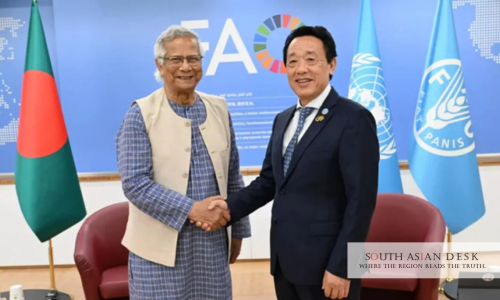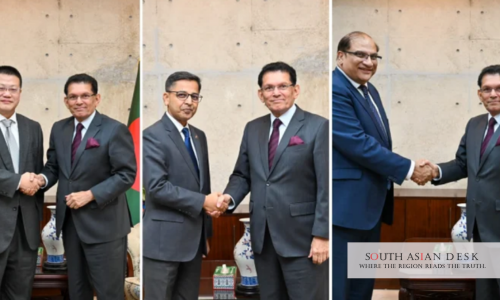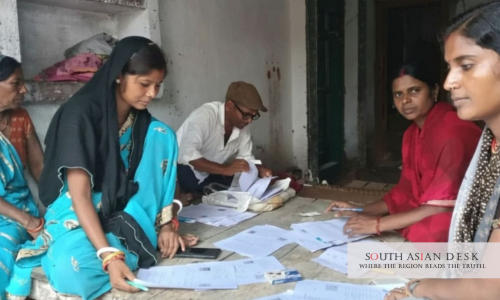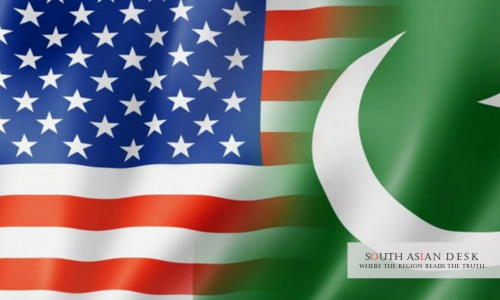FAO Director-General Qu Dongyu pledged support for Bangladesh deep-sea fishing in a Rome meeting with Chief Adviser Muhammad Yunus on Monday. The Yunus FAO meeting, held during World Food Forum events, targeted expertise in fisheries processing and fruit value addition. Bangladesh seeks to harness its maritime resources for sustainable growth.
Bangladesh’s push for FAO support Bangladesh deep-sea fishing addresses South Asia’s food security gaps, where overfished waters and post-harvest losses threaten 400 million livelihoods from Sri Lanka to Nepal, potentially stabilising regional supply chains and curbing import dependencies.
Yunus FAO Meeting Forges Key Pledges
Chief Adviser Muhammad Yunus met FAO Director-General Qu Dongyu at FAO headquarters in Rome on 13 October 2025. The Yunus FAO meeting occurred on the sidelines of the World Food Forum and FAO’s 80th anniversary celebrations. Dr Qu welcomed Professor Yunus and praised his contributions to rural development. He called Bangladesh a high-performing country in agriculture.
Professor Yunus thanked FAO for decades of aid. He requested help in three areas. First, build deep-sea fisheries expertise and fish processing skills. Second, enhance fruit preservation and processing for exports. Third, improve post-harvest management with affordable cold storage.
Dr Qu reaffirmed FAO’s commitment. He promised technical assistance, innovation, and South-South cooperation. Both agreed to advance agrifood transformation in Bangladesh and the region.
Food Adviser Ali Imam Majumder attended the talks. Fisheries Adviser Farida Akhter joined. SDGs Coordinator Lamiya Morshed participated. Foreign Secretary Asad Alam Siam was present.
Professor Yunus highlighted Bangladesh’s ocean potential. He noted foreign trawlers exploit deep waters while locals stay shallow. Dr Qu suggested inviting Chinese experts to assess stocks and craft sustainable plans.
Sustainable Fisheries Bangladesh Gains Momentum
The Yunus FAO meeting emphasised sustainable fisheries Bangladesh initiatives. Current marine catches total 720,000 tonnes annually. Deep-sea efforts could lift production from 95,000 tonnes to over 500,000 tonnes yearly. This aligns with government goals to double overall fish output in 18 years.
Bangladesh exported 91,000 tonnes of fish products worth BDT 6,145 crore in FY2025. Hilsa shipments hit record lows at 145 tonnes amid bans, pushing prices up 52%. Marine harvests fell for the second year to 719,619 tonnes in FY2024.
FAO support Bangladesh deep-sea fishing targets these gaps. The Department of Fisheries runs pilot projects on tuna in the Bay of Bengal. A master plan eyes blue economy unlocks through sustainable tuna fishing.
Chief Adviser Yunus urged the fisheries ministry in July to prioritise deep-sea ventures. Ports like Moheshkhali-Matarbari will boost logistics for exports to 52 countries. Fish earnings reached BDT 4,790 crore from 70,000 tonnes in FY2023.
Structural challenges persist. Artisanal pressure rises as industrial deep-sea rules tighten. FAO’s technical aid could equip vessels and train 100,000 fishers.
Bangladesh Fruit Exports Boost Targets China Market
Fruit sectors stand to gain from the Yunus FAO meeting outcomes. Bangladesh produced 2.7 million tonnes of mangoes in 2025. Exports hit 2,194 tonnes by September, up 66% from 1,321 tonnes in 2024.
Overall fruit shipments rose 36% to USD 55.35 million in FY2025. Targets aim for USD 71.8 million next year. Mangoes led with 1,757 tonnes in FY2022.
Jackfruit and guava show promise. First sea exports of mangoes and jackfruits reached the UAE in September, growing vegetable routes 313% year-on-year. China eyes large imports of these crops.
Professor Yunus stressed value addition. Post-harvest losses hit 30-40% for smallholders without cold storage. FAO pledged aid for portable units to cut waste.
Dr Qu cited China’s 1980s fruit boom to Japan as a model. Bangladesh’s high-value crops like mangoes could follow. EPB data shows rising shipments of jackfruit at 0.3% global share potential.
The Yunus FAO meeting ties fruit boosts to broader sustainable fisheries Bangladesh efforts. Improved processing could add BDT 1,000 crore in revenues annually.
Background
Bangladesh joined FAO in 1973. Partnerships focus on flood-resilient rice and delta management. Fisheries contribute 3.57% to GDP, employing 11% of the workforce. Fruit production spans 1.2 million hectares, but exports lag at 1% of output due to quality issues.
Interim government under Professor Yunus prioritises blue and green economies post-2024 floods. FAO aid since 1971 totals USD 500 million in projects. Deep-sea pilots began in 2020 with Indian Ocean ventures.
What’s Next
Bangladesh plans to invite Chinese experts by Q1 2026 for stock assessments. Fisheries ministry targets 10 new deep-sea vessels. Fruit processing hubs in Rajshahi could launch with FAO tech by mid-2026.
Implementation hinges on budget allocations. Success could double exports to USD 100 million in fruits alone.
FAO support Bangladesh deep-sea fishing emerges as a pivotal step towards self-reliant agrifood systems.
Published in SouthAsianDesk, October 14th, 2025
Follow SouthAsianDesk on X, Instagram, and Facebook for insights on business and current affairs from across South Asia.






